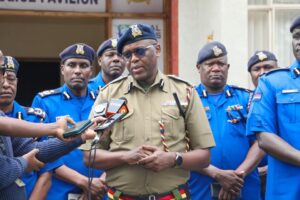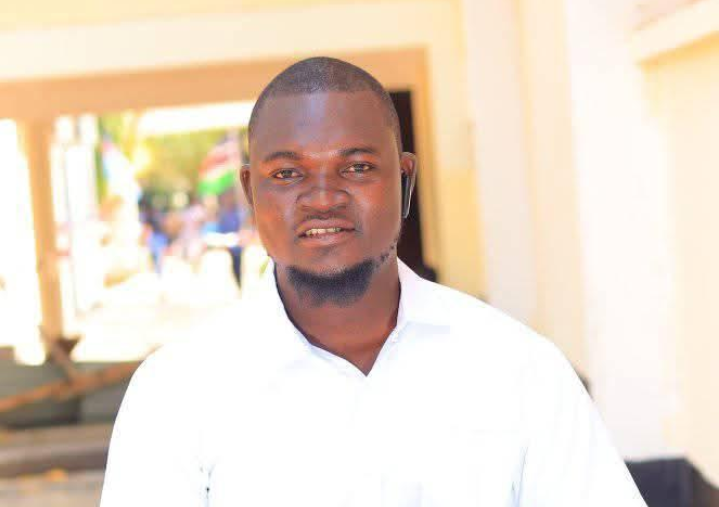The Inspector General of Police, Douglas Kanja, has opened up shocking details about a case that is shaking the country. It involves the mysterious X account allegedly linked to Albert Ojwang, the young man who recently died in police custody.
His death had already raised eyebrows, but now the information brought before the Senate on June 11 has added a new and darker twist.
Kanja told senators that the X account known as Pixel Pioneer, believed to have been run by Ojwang, was more than just a random social media page. It had over 13,000 followers and shared serious posts that accused top police officers of corruption.
One of the main targets was Deputy Inspector General Eliud Lagat. The posts went beyond opinion. They claimed Lagat was using loyal officers to control key police operations such as DCI desks, OB desks, and traffic schedules, all to manage both information and money.

Police DIG Eliud Langat during a past media presser
Another post even showed Lagat standing next to senior officer Joseph Chirchir, alleging that the two were being investigated by the Ethics and Anti-Corruption Commission over a $1.2 million home in Dubai. The caption called Lagat “Mafia Police,” and the image quickly went viral.
The situation grew tense. Kanja said Lagat responded by writing to the Directorate of Criminal Investigations, calling the posts defamatory. That triggered a formal investigation under the Computer Misuse and Cybercrime Act.
DCI boss Mohammed Amin then ordered the cybercrime unit to take over the case. They contacted the Communications Authority of Kenya and the EACC. The goal was to find out if the corruption claims were true and who was running the Pixel Pioneer account.
On June 4, the Communications Authority confirmed the account was still active. They preserved its data and began their analysis. A day later, the EACC denied any investigation into DIG Lagat, meaning the corruption claims were likely false.
But the probe didn’t end there. The CA then found links to another X account called Kevin Moishyleez. From this, detectives narrowed their suspects to Albert Ojwang and Kevin Muinde.
Muinde was arrested in Kisii on June 5. Ojwang was picked up two days later on June 7. But within 24 hours of his arrest, Ojwang was dead. Police at first claimed he had taken his own life. But an autopsy proved otherwise.
His death was not self-inflicted. This shocking finding brought Interior CS Kipchumba Murkomen, IGP Kanja, DCI boss Amin, and IPOA deputy chair Ann Wanjiku to face the Senate.
Senators questioned how a suspect could die under such suspicious circumstances just hours after being arrested. They asked whether this was truly about cybercrime or if Ojwang was targeted for exposing powerful people.
The Senate session made it clear that this case is about more than fake news. Kanja said the investigations would go on. But many Kenyans feel the damage has already been done.
There are rising concerns about how police handle whistleblowers, critics, and people using social media to speak out. The Pixel Pioneer account is now not just an online profile. It has become a symbol of the struggle between free speech and power in Kenya.
With Ojwang dead and questions still unanswered, the public is demanding accountability, truth, and justice.



